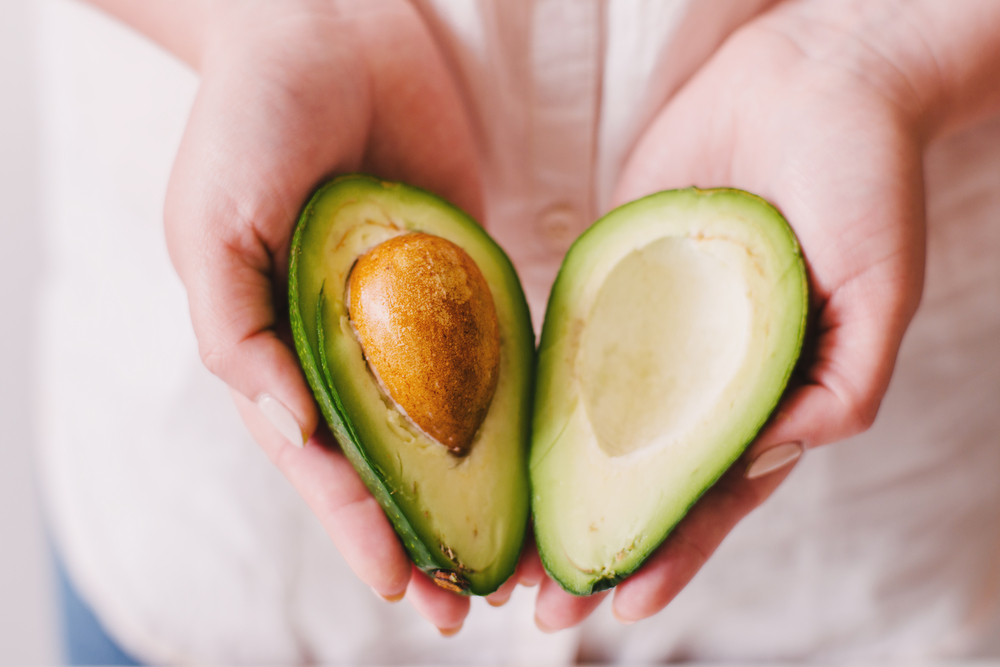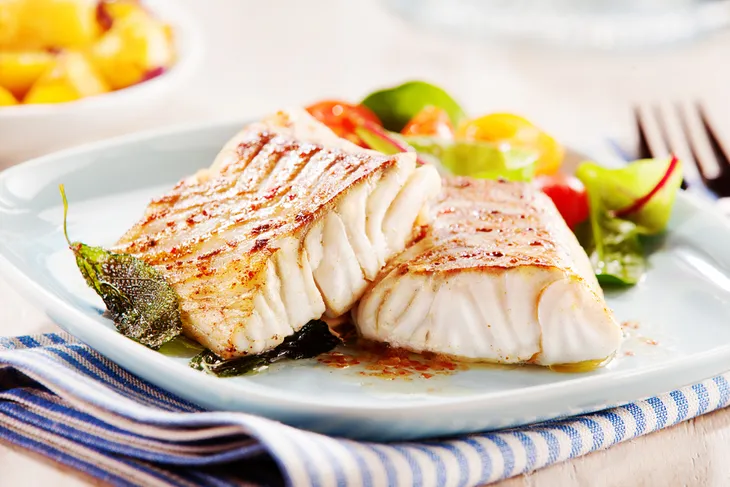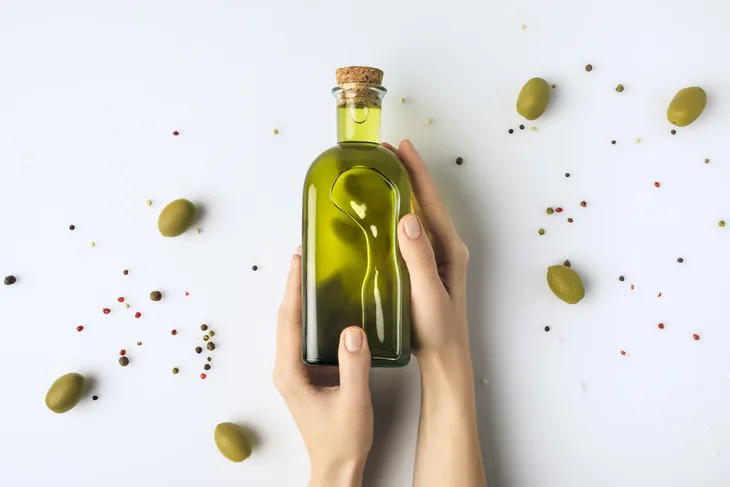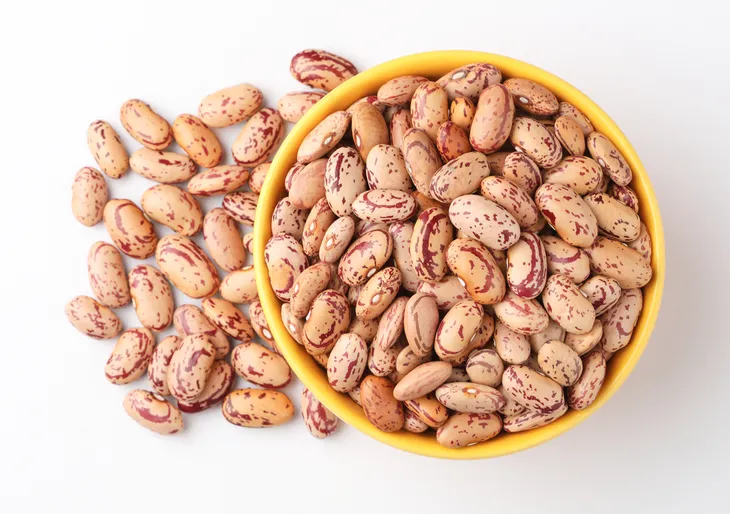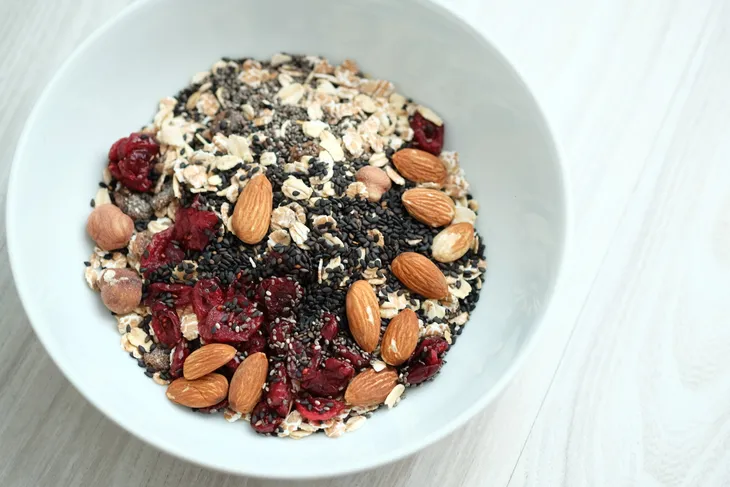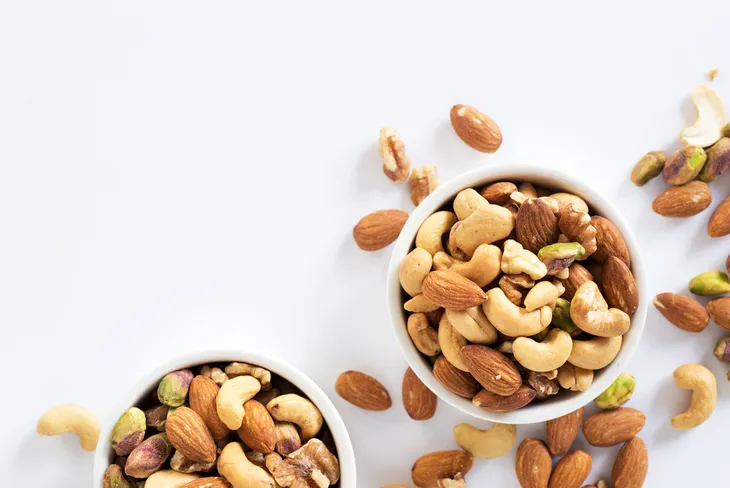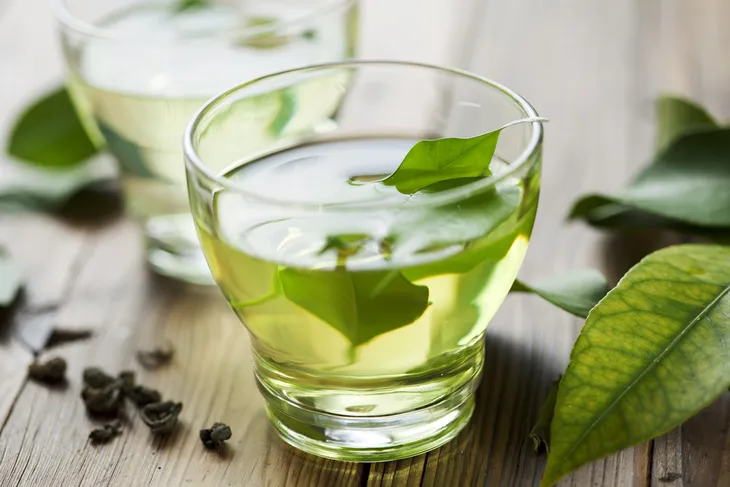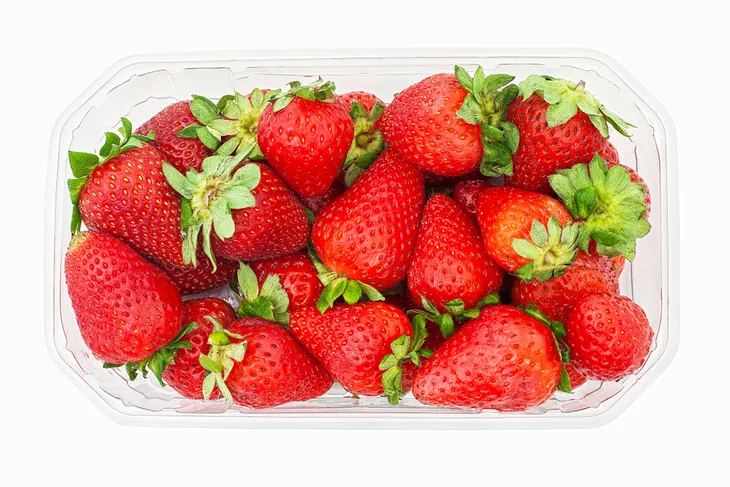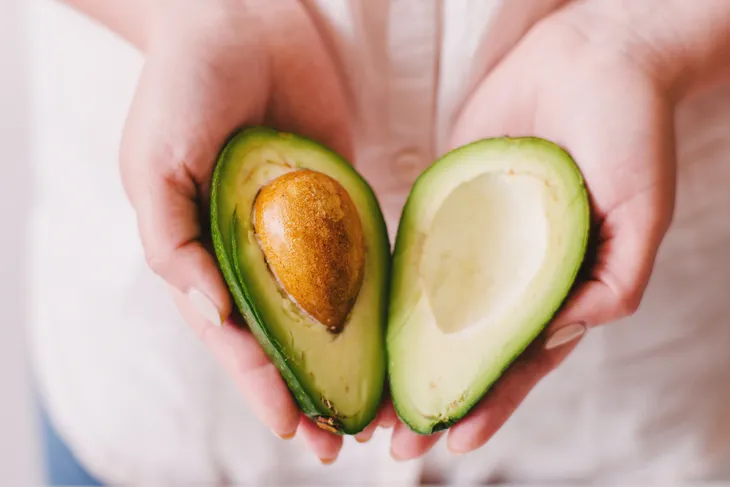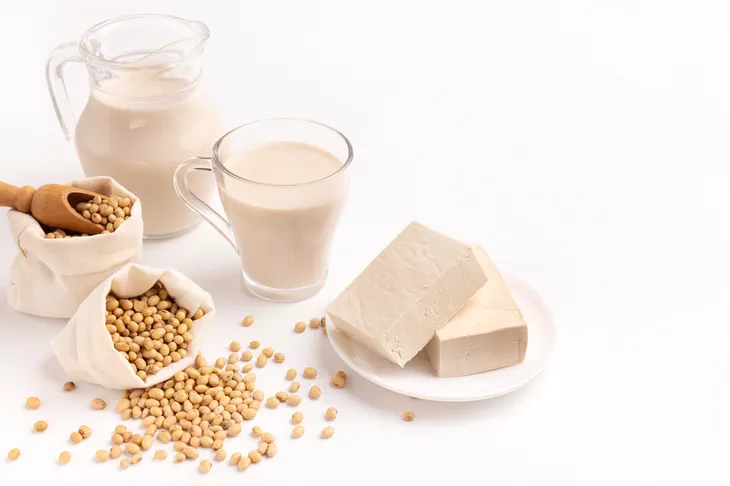Cholesterol gets a bad rap. In fact, our bodies actually produce a certain amount of HDL (or good) cholesterol. Cholesterol is made up of a waxy substance travels through the blood, helping in the production of some hormones and vitamin D, and keeping our arteries clear.
It is the dietary choices we make every day that contribute to our elevated LDL (or bad) cholesterol levels. When bad cholesterol gets too high, it starts to build up in the arteries, creating the plaques that cause heart disease. That’s why it’s vital to be active every day and eat a healthy diet that’s low in LDL cholesterol—to encourage weight loss and keep our cholesterol levels within a healthy range. A diet rich in the following 10 heart-healthy foods can actually help you lower bad cholesterol…
Want diet & nutrition content delivered straight to your inbox? Sign up for our exclusive diet & nutrition newsletter!
Fish
You might think that fatty fish—like salmon, tuna or sardines—is bad for the old ticker, but more seafood in your diet is actually good for your ticker. Why? Because fatty-fish filets of albacore tuna and salmon are rich sources of omega-3 fatty acids, which lower triglycerides (unsaturated fat) in the blood and heart.
Recommendations from the American Heart Association suggest a minimum of two servings of 3.5-ounces (or 3/4-cups) of fatty fish per week. Fatty fish species, such as herring, salmon, sardines, albacore tuna, and mackerel are rich in omega-3 fatty acids, which protect heart health. If you don’t dig fish, talk to your doctor about taking omega-3 fatty acid supplements.
Olive Oil
One easy way to swap saturated bad fats for heart-healthy good fats is to use a teaspoon of olive oil as an alternative to that dollop of butter. Olive oil will increase HDL, or good, cholesterol and encourage a trimmer waistline as well. Why? Because olive oil contains heart-healthy phytosterols, which are plant-based compounds that help block cholesterol absorption.
Researchers at Biofortis Clinical Research, claim that consuming extra virgin olive oil (EVOO) decreases heart rate and diastolic blood pressure. The study monitored the effects of extra virgin olive oil on a group of 54 healthy male and female participants, for a total of 21 days and discovered that olive oil decreased LDL (bad) cholesterol by 11-percent. Interestingly enough, the same study found that corn oil was able to lower total cholesterol by roughly 9-percent.
Beans
Beans, beans are good for your heart…and that includes all varieties of kidney, navy, garbanzos, black beans, and lentils. Each serving of beans is jam-packed fiber, which reduces bad, or LDL, cholesterol and helps give you that satisfied feeling longer after you eat so you feel less hungry.
In fact, a study from Arizona State University in 2008 found that study participants who consumed a half-cup of beans a day, over a course of 24-weeks, lowered their cholesterol by an impressive 8-percent! So the famous saying should be amended to, “Beans, beans the magical fruit…the more you eat, the healthier your cholesterol levels will be!”
Oats
Nothing soothes the soul more than a hot bowl of oats—and it turns out they soothe the heart as well. Reason being that that bowl of morning oatmeal is a rich source of fiber, which helps keep you slim, aids digestion, lowers cholesterol, and makes you feel full for longer so your tendency for late night noshing is curbed.
According to research from the Mayo Clinic, oats, and other foods containing soluble fiber reduce low-density lipoprotein (LDL), or “bad,” cholesterol because soluble fiber is able to lower the rate of the absorption of cholesterol into the bloodstream. The Mayo Clinic recommends consuming 5- to 10-grams or more of soluble fiber every day to lower LDL cholesterol.
Nuts
A perfectly-portioned handful of heart-healthy nuts—such as almonds or walnuts—are the perfect cholesterol-lowering snack. Sprinkle a handful of your favorite variety on top of a mixed green salad, your morning cereal, a colorful stir fry, or a cup of fat free yogurt to help lower both your LDL cholesterol and triglyceride levels. However, remember that nuts are high in unsaturated fat and calories, and often sodium, which means that a small serving of plain, unsalted nuts are the best option.
A study analysis of 25 previous studies, co-conducted by researchers at Loma Linda University in California and the Instituto de Salud Carlos III in Barcelona, examined the effects of nut-rich diets on blood cholesterol and fat levels. Findings showed that nut-enriched diets (of at least 67-grams per day) lowered the total cholesterol and LDL (bad)-cholesterol by roughly 7.4-percent.
Red Wine
It turns out there is a good reason why chest pain (or angina) is less prevalent in France compared to most other European countries, and that reason is a large glass of vino. One glass really won’t hurt—it’s actually quite beneficial. In fact one glass of antioxidant-enriched, red wine is actually good for you according to a 2003 Harvard study that linked the occasional glass of red wine with increased HDL, or good, cholesterol.
Harvard’s findings show that red wine is thought to contain multiple beneficial substances that calm and de-stress blood vessel walls, reduce the oxidation of low-density lipoprotein (or LDL cholesterol), prevent the buildup of plaque, and ward off blood clots. The same study also showed that moderate drinkers of red wine were approximately 35-percent less likely to suffer a heart attack compared to non-drinkers.
Green Tea
The benefits of green tea are numerous—from its cancer-fighting properties to its ability to help regulate glucose levels for diabetes patients. Well, the miracle, health elixir that is green tea has also been linked to decreased LDL, or bad, cholesterol levels. Enjoy it hot or iced any time of year and know that you’re giving your body a beneficial beverage.
According to a study published by the National Institutes of Health, which examined the effects of green tea on total cholesterol, meaning both LDL (bad) cholesterol and HDL (good) cholesterol, during 14 controlled trials consisting of 1136 participants. Findings showed that regular green tea consumption significantly lowered the TC concentration as well as LDL-cholesterol. However, no reduction was noted as far as green tea’s effects on HDL cholesterol. This is promising as HDL cholesterol aids the removal of LDL cholesterol from the arteries.
Strawberries
Strawberries are a sweet treat on yogurt, cereal, and even salad! Now you have even more reasons to eat a handful of the bright red berry due to the fact that they’re rich in pectin, a type of soluble fiber, which can actually help decrease bad cholesterol or LDL. In fact, a 2013 Harvard University study discovered that females who consumed strawberries and blueberries regularly lowered their overall risk of heart attack due to high anthocyanin content in both types of berries.
Research from the Universities of Salamanca, Granada and Seville, in Spain as well as the Università Politecnica delle Marche, in Italy supported this claim when they published their findings in the Journal of Nutritional Biochemistry. After researchers added 500-grams of strawberries to the daily diets of 23 healthy participants, their blood samples revealed a significant reduction in LDL (bad) cholesterol.
Avocados
Another fabulous, heart-healthy butter substitute, creamy avocados have similar health benefits to olive oil in that both are filled with LDL cholesterol-lowering mono-unsaturated fats. You can use avocado as a creamy salad topper instead of cheese or as a sandwich spread instead of butter. Keep in mind that avocados do contain a lot of fat, but that fat is largely monounsaturated fats, which studies conclude increase HDL (good) cholesterol, which stops the absorption of LDL (bad) cholesterol in support of heart health.
Food research from NYU Langone Medical Center, suggests that avocados are high in beneficial monounsaturated fats, which while they improve levels of HDL (good) cholesterol; they reduce heart-threatening triglycerides. The rich soluble fiber content of avocados is also credited with reducing blood cholesterol levels. Lastly, avocados are high in a plant sterol called beta-sitosterol, which has also been linked to lowering the risk of heart disease.
Soy
Like fish, soy is a great source of protein for vegetarians because it’s also super high in saturated fat and cholesterol (the good kinds). Soy is completely LDL-cholesterol free while it boosts HDL (or good) cholesterol.
According to research from the American Heart Association, soy has been linked to a slight reduction in LDL (bad) cholesterol (or low-density lipoprotein). However, a diet high in soy-based food doesn’t reduce total cholesterol overall. Do consider though that diets high in soy-based foods are often made up of fewer sources of saturated fat from animal sources. This means your LDL (bad) cholesterol is likely lower if you consume less animal-based products.
